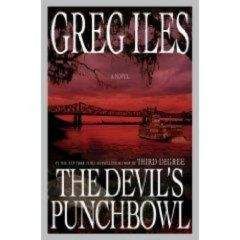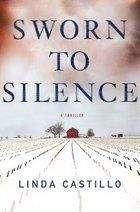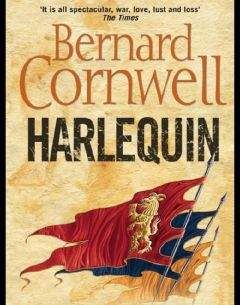Michael Ondaatje - The English Patient

Скачивание начинается... Если скачивание не началось автоматически, пожалуйста нажмите на эту ссылку.
Жалоба
Напишите нам, и мы в срочном порядке примем меры.
Описание книги "The English Patient"
Описание и краткое содержание "The English Patient" читать бесплатно онлайн.
Other, private winds.
Travelling along the ground like a flood. Blasting off paint, throwing down telephone poles, transporting stones and statue heads. The harmattan blows across the Sahara filled with red dust, dust as fire, as flour, entering and coagulating in the locks of rifles. Mariners called this red wind the “sea of darkness.” Red sand fogs out of the Sahara were deposited as far north as Cornwall and Devon, producing showers of mud so great this was also mistaken for blood. “Blood rains were widely reported in Portugal and Spain in 1901.”
There are always millions of tons of dust in the air, just as there are millions of cubes of air in the earth and more living flesh in the soil (worms, beetles, underground creatures) than there is grazing and existing on it. Herodotus records the death of various armies engulfed in the simoom who were never seen again. One nation was “so enraged by this evil wind that they declared war on it and marched out in full battle array, only to be rapidly and completely interred.”
Dust storms in three shapes. The whirl. The column. The sheet. In the first the horizon is lost. In the second you are surrounded by “waltzing Ginns.” The third, the sheet, is “copper-tinted. Nature seems to be on fire. ”
She looks up from the book and sees his eyes on her. He begins to talk across the darkness.
The Bedouin were keeping me alive for a reason. I was useful, you see. Someone there had assumed I had a skill when my plane crashed in the desert. I am a man who can recognize an unnamed town by its skeletal shape on a map. I have always had information like a sea in me. I am a person who if left alone in someone’s home walks to the bookcase, pulls down a volume and inhales it. So history enters us. I knew maps of the sea floor, maps that depict weaknesses in the shield of the earth, charts painted on skin that contain the various routes of the Crusades.
So I knew their place before I crashed among them, knew when Alexander had traversed it in an earlier age, for this cause or that greed. I knew the customs of nomads besotted by silk or wells. One tribe dyed a whole valley floor, blackening it to increase convection and thereby the possibility of rainfall, and built high structures to pierce the belly of a cloud. There were some tribes who held up their open palm against the beginnings of wind. Who believed that if this was done at the right moment they could deflect a storm into an adjacent sphere of the desert, towards another, less loved tribe. There were continual drownings, tribes suddenly made historical with sand across their gasp.
In the desert it is easy to lose a sense of demarcation. When I came out of the air and crashed into the desert, into those troughs of yellow, all I kept thinking was, I must build a raft.… I must build a raft.
And here, though I was in the dry sands, I knew I was among water people.
In Tassili I have seen rock engravings from a time when the Sahara people hunted water horses from reed boats. In Wadi Sura I saw caves whose walls were covered with paintings of swimmers. Here there had been a lake. I could draw its shape on a wall for them. I could lead them to its edge, six thousand years ago.
Ask a mariner what is the oldest known sail, and he will describe a trapezoidal one hung from the mast of a reed boat that can be seen in rock drawings in Nubia. Pre-dynastic. Harpoons are still found in the desert. These were water people. Even today caravans look like a river. Still, today it is water who is the stranger here. Water is the exile, carried back in cans and flasks, the ghost between your hands and your mouth.
When I was lost among them, unsure of where I was, all I needed was the name of a small ridge, a local custom, a cell of this historical animal, and the map of the world would slide into place.
What did most of us know of such parts of Africa? The armies of the Nile moved back and forth—a battlefield eight hundred miles deep into the desert. Whippet tanks, Blenheim medium-range bombers. Gladiator biplane fighters. Eight thousand men. But who was the enemy? Who were the allies of this place—the fertile lands of Cyrenaica, the salt marshes of El Agheila? All of Europe were fighting their wars in North Africa, in Sidi Rezegh, in Baguoh.
He travelled on a skid behind the Bedouin for five days in darkness, the hood over his body. He lay within this oil-doused cloth. Then suddenly the temperature fell. They had reached the valley within the red high canyon walls, joining the rest of the desert’s water tribe that spilled and slid over sand and stones, their blue robes shifting like a spray of milk or a wing. They lifted the soft cloth off him, off the suck of his body. He was within the larger womb of the canyon. The buzzards high above them slipping down a thousand years into this crack of stone where they camped.
In the morning they took him to the far reach of the siq. They were talking loudly around him now. The dialect suddenly clarifying. He was here because of the buried guns.
He was carried towards something, his blindfolded face looking straight ahead, and his hand made to reach out a yard or so. After days of travel, to move this one yard. To lean towards and touch something with a purpose, his arm still held, his palm facing down and open. He touched the Sten barrel and the hand let go of him. A pause among the voices. He was there to translate the guns.
‘Twelve-millimetre Breda machine gun. From Italy.”
He pulled back the bolt, inserted his finger to find no bullet, pushed it back and pulled the trigger. Puht. “Famous gun,” he muttered. He was moved forward again.
“French seven-point-five-millimetre Châttelerault. Light machine gun. Nineteen twenty-four.”
“German seven-point-nine-millimetre MG-Fifteen air service.”
He was brought to each of the guns. The weapons seemed to be from different time periods and from many countries, a museum in the desert. He brushed the contours of the stock and magazine or fingered the sight. He spoke out the gun’s name, then was carried to another gun. Eight weapons formally handed to him. He called the names out loud, speaking in French and then the tribe’s own language. But what did that matter to them? Perhaps they needed not the name but to know that he knew what the gun was.
He was held by the wrist again and his hand sunk into a box of cartridges. In another box to the right were more shells, seven-millimetre shells this time. Then others.
When he was a child he had grown up with an aunt, and on the grass of her lawn she had scattered a deck of cards face down and taught him the game of Pelmanism. Each player allowed to turn up two cards and, eventually, through memory pairing them off. This had been in another landscape, of trout streams, birdcalls that he could recognize from a halting fragment. A fully named world. Now, with his face blindfolded in a mask of grass fibres, he picked up a shell and moved with his carriers, guiding them towards a gun, inserted the bullet, bolted it, and holding it up in the air fired. The noise cracking crazily down the canyon walls. “For echo is the soul of the voice exciting itself in hollow places.” A man thought to be sullen and mad had written that sentence down in an English hospital. And he, now in this desert, was sane, with clear thought, picking up the cards, bringing them together with ease, his grin flung out to his aunt, and firing each successful combination into the air, and gradually the unseen men around him replied to each rifle shot with a cheer. He would turn to face one direction, then move back to the Breda this time on his strange human palanquin, followed by a man with a knife who carved a parallel code on shell box and gun stock. He thrived on it— the movement and the cheering after the solitude. This was payment with his skill for the men who had saved him for such a purpose.
There are villages he will travel into with them where there are no women. His knowledge is passed like a counter of usefulness from tribe to tribe. Tribes representing eight thousand individuals. He enters specific customs and specific music. Mostly blindfolded he hears the water-drawing songs of the Mzina tribe with their exultations, dahhiya dances, pipe-flutes which are used for carrying messages in times of emergency, the makruna double pipe (one pipe constantly sounding a drone). Then into the territory of five-stringed lyres. A village or oasis of preludes and interludes. Hand-clapping. Antiphonal dance.
He is given sight only after dusk, when he can witness his captors and saviours. Now he knows where he is. For some he draws maps that go beyond their own boundaries and for other tribes too he explains the mechanics of guns. The musicians sit across the fire from him. The simsimiya lyre notes flung away by a gust of breeze. Or the notes shift towards him over the flames. There is a boy dancing, who in this light is the most desirable thing he has seen. His thin shoulders white as papyrus, light from the fire reflecting sweat on his stomach, nakedness glimpsed through openings in the blue linen he wears as a lure from neck to ankle, revealing himself as a line of brown lightning.
The night desert surrounds them, traversed by a loose order of storms and caravans. There are always secrets and dangers around him, as when blind he moved his hand and cut himself on a double-edged razor in the sand. At times he doesn’t know if these are dreams, the cut so clean it leaves no pain, and he must wipe the blood on his skull (his face still untouchable) to signal the wound to his captors. This village of no women he has been brought into in complete silence, or the whole month when he did not see the moon. Was this invented? Dreamed by him while wrapped in oil and felt and darkness?
They had passed wells where water was cursed. In some open spaces there were hidden towns, and he waited while they dug through sand into the buried rooms or waited while they dug into nests of water. And the pure beauty of an innocent dancing boy, like sound from a boy chorister, which he remembered as the purest of sounds, the clearest river water, the most transparent depth of the sea. Here in the desert, which had been an old sea where nothing was strapped down or permanent, everything drifted—like the shift of linen across the boy as if he were embracing or freeing himself from an ocean or his own blue afterbirth. A boy arousing himself, his genitals against the colour of fire.
Then the fire is sanded over, its smoke withering around them. The fall of musical instruments like a pulse or rain. The boy puts his arm across, through the lost fire, to silence the pipe-flutes. There is no boy, there are no footsteps when he leaves. Just the borrowed rags. One of the men crawls forward and collects the semen which has fallen on the sand. He brings it over to the white translator of guns and passes it into his hands. In the desert you celebrate nothing but water.
She stands over the sink, gripping it, looking at the stucco wall. She has removed all mirrors and stacked them away in an empty room. She grips the sink and moves her head from side to side, releasing a movement of shadow. She wets her hands and combs water into her hair till it is completely wet. This cools her and she likes it when she goes outside and the breezes hit her, erasing the thunder.
II
In Near Ruins
THE MAN WITH BANDAGED HANDS had been in the military hospital in Rome for more than four months when by accident he heard about the burned patient and the nurse, heard her name. He turned from the doorway and walked back into the clutch of doctors he had just passed, to discover where she was. He had been recuperating there for a long time, and they knew him as an evasive man. But now he spoke to them, asking about the name, and startled them. During all that time he had never spoken, communicating by signals and grimaces, now and then a grin. He had revealed nothing, not even his name, just wrote out his serial number, which showed he was with the Allies.
His status had been double-checked, and confirmed in messages from London. There was the cluster of known scars on him. So the doctors had come back to him, nodded at the bandages on him. A celebrity, after all, wanting silence. A war hero.
That was how he felt safest. Revealing nothing. Whether they came at him with tenderness or subterfuge or knives. For more than four months he had not said a word. He was a large animal in their presence, in near ruins when he was brought in and given regular doses of morphine for the pain in his hands. He would sit in an armchair in the darkness, watching the tide of movement among patients and nurses in and out of the wards and stockrooms.
But now, walking past the group of doctors in the hall, he heard the woman’s name, and he slowed his pace and turned and came up to them and asked specifically which hospital she was working in. They told him that it was in an old nunnery, taken over by the Germans, then converted into a hospital after the Allies had laid siege to it. In the hills north of Florence. Most of it torn apart by bombing. Unsafe. It had been just a temporary field hospital. But the nurse and the patient had refused to leave.
Why didn’t you force the two of them down?
She claimed he was too ill to be moved. We could have brought him out safely, of course, but nowadays there is no time to argue. She was in rough shape herself.
Is she injured?
No. Partial shell shock probably. She should have been sent home. The trouble is, the war here is over. You cannot make anyone do anything anymore. Patients are walking out of hospitals. Troops are going AWOL before they get sent back home.
Which villa? he asked.
It’s one they say has a ghost in the garden. San Girolamo. Well, she’s got her own ghost, a burned patient. There is a face, but it is unrecognizable. The nerves all gone. You can pass a match across his face and there is no expression. The face is asleep.
Who is he? he asked.
We don’t know his name.
He won’t talk?
The clutch of doctors laughed. No, he talks, he talks all the time, he just doesn’t know who he is.
Where did he come from?
The Bedouin brought him into Siwa Oasis. Then he was in Pisa for a while, then … One of the Arabs is probably wearing his name tag. He will probably sell it and we’ll get it one day, or perhaps they will never sell it. These are great charms. All pilots who fall into the desert—none of them come back with identification. Now he’s holed up in a Tuscan villa and the girl won’t leave him. Simply refuses. The Allies housed a hundred patients there. Before that the Germans held it with a small army, their last stronghold. Some rooms are painted, each room has a different season. Outside the villa is a gorge. All this is about twenty miles from Florence, in the hills. You will need a pass, of course. We can probably get someone to drive you up. It is still terrible out there. Dead cattle. Horses shot dead, half eaten. People hanging upside down from bridges. The last vices of war. Completely unsafe. The sappers haven’t gone in there yet to clear it. The Germans retreated burying and installing mines as they went. A terrible place for a hospital. The smell of the dead is the worst. We need a good snowfall to clean up this country. We need ravens.
Подписывайтесь на наши страницы в социальных сетях.
Будьте в курсе последних книжных новинок, комментируйте, обсуждайте. Мы ждём Вас!
Похожие книги на "The English Patient"
Книги похожие на "The English Patient" читать онлайн или скачать бесплатно полные версии.
Мы рекомендуем Вам зарегистрироваться либо войти на сайт под своим именем.
Отзывы о "Michael Ondaatje - The English Patient"
Отзывы читателей о книге "The English Patient", комментарии и мнения людей о произведении.







